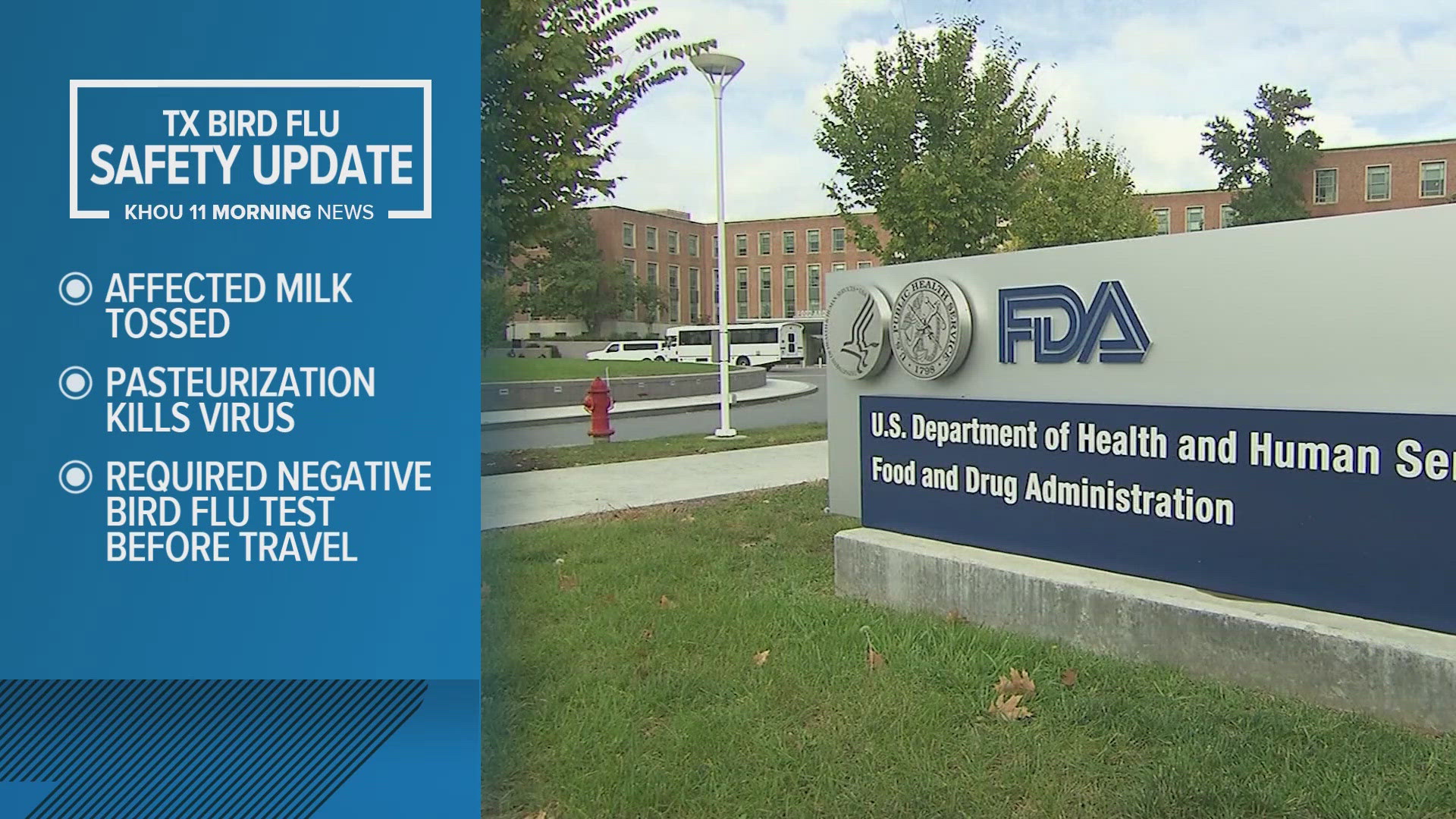TEXAS, USA — "There is no reason for consumers to panic," Texas Agriculture Commissioner Sid Miller said in response to a Food and Drug Administration (FDA) report that one in five samples of grocery milk tested positive for bird flu.
Miller said despite these findings, the Texas Department of Agriculture (TDA), the FDA and the U.S. Department of Agriculture (USDA) agree that commercial milk supplies are safe.
"Milk from affected cows is discarded before it can enter the supply chain," Miller said. "In the rare event that contaminated milk does enter the supply chain, pasteurization effectively kills viruses even if traces of the virus remain detectable."
The pasteurization process involves heating milk to around 161 degrees for 15 to 30 seconds, according to TDA.
The USDA has detected the bird flu at 33 dairy cattle facilities across eight states, including Texas. According to TDA, the USDA is implementing new health mandates that go into effect on April 29, including the following:
- Dairy cattle are required to receive a negative test for influenza A virus at an approved National Animal Health Laboratory Network (NAHLN) facility before interstate movement.
- Owners of herds in which dairy cattle test positive for interstate movement will be required to provide epidemiological information, including animal movement tracing.
- Dairy cattle moving interstate must adhere to conditions specified by the USDA's Animal and Plant Health Inspection Service (APHIS).
- These steps will immediately be required for lactating dairy cattle. These requirements for other classes of dairy cattle will be based on scientific factors concerning the virus and its evolving risk profile.
- Laboratories and state veterinarians must report positive influenza A nucleic acid detection diagnostic results (e.g., PCR or genetic sequencing) and positive influenza A serology diagnostic results in livestock to APHIS.
Miller said he does not anticipate any milk shortages or price hikes.

